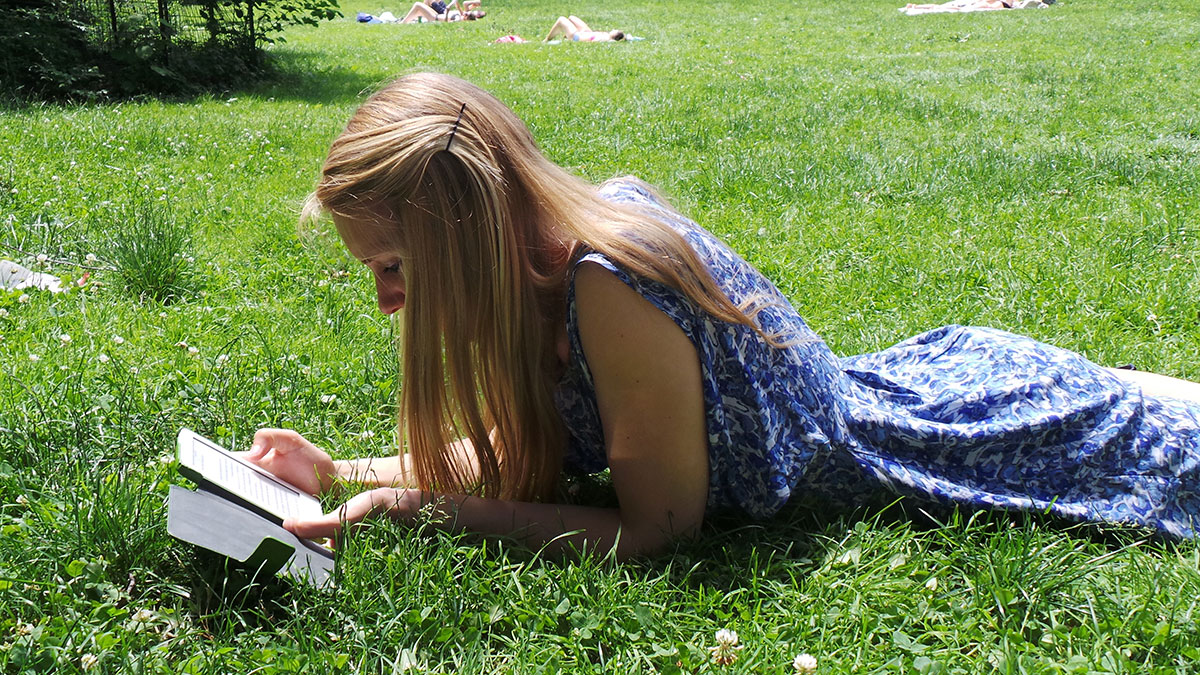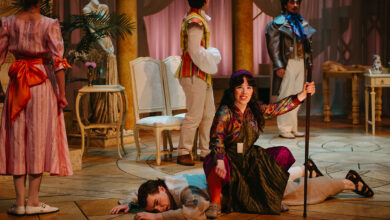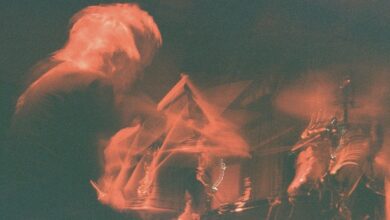Group Commentary: Summer reads to save you from boredom
 Supplied
SuppliedWhether you’re stuck in the freaky backwater town that your parents still live in or if you’re catching some rays on a cruise, it’s hard to keep yourself from getting bored while on summer break. Luckily, your friends at the Gateway have some suggestions for books to read so that you don’t totally lose your mind. These aren’t your typical light-hearted books to bring to the beach. Instead, expand your mind with these deep, introspective tomes.
Maggie Schmidt
For some people, summer reading is limited to light-hearted, easy-to-read novels. For students who love classic literature, however, summer is the only time to catch up on tomes that usually have to be put aside during the academic year. The three and a half month break from classes is the ideal amount of time to get through one of the most beloved and historically-significant stories of all time.
The Hunchback of Notre Dame isn’t an easy read – it’s several hundred pages long and features a few dull chapters in which the storyline doesn’t even progress. The payoff is worth it, though, and readers can appreciate the ahead-of-its-time dry humour and timeless love story. Loaded with heavy concepts about romance and daring plot twists, it’s definitely not the same story that Disney animated for children.
Because it’s such a bulky, heavy book, it also doubles as a flat surface for drinks at the beach or as emergency toilet paper for sweet camping trips. The best perk? You’ll look like the smartest person in the park when you pull out and start reading from the classic novel.
Riley Samson
As long and miserable as Edmonton’s winters can be, its summers can be equally torturous if you’re not one for showering every few hours. As an escape from the heat, why not read a book about a fictional planet where it never stops snowing?
Ursula Le Guin’s The Left Hand of Darkness is set on Gethen, a particularly frosty world where the inhabitants drink hot beer for breakfast. The novel details the adventures of an ambassador of an interstellar coalition of sorts as he makes contact with the natives.
Written in 1969, The Left Hand of Darkness is undoubtedly a classic in the literary canon of science fiction, but is not a work that most people are familiar with.
Although the first half of the novel has more to do with politics, the second half is almost entirely about survival during the harsh winter on Gethen, as the protagonists make a two-month-long trek across a massive glacier. The descriptions of Gethanian weather make Hoth and Rura Penthe sound like good places for vacation homes, and are bound to make an uncomfortably hot summer feel a little cooler.
Oumar Salifou
William Deresiewicz’s Excellent Sheep lays out a slightly pessimistic but very honest portrait of higher education in America’s Ivy League. As a former professor at Yale, Deresiewicz is able to diagnose many problems with postsecondary education, from the constant confusion that students face to the lack of guidance that professors offer.
There’s no better time to start reading about miseducation than in the summer when you’re contemplating your return to another semester of grueling classes. This book may be seen as somewhat distant from the U of A campus experience, but college experiences span past institutional borders.
While school’s out this book can also help you do some soul searching about what you want to do with your life or as William puts it find your “vocation”. So while you have all the time in the world this summer find your true passion by criticizing our academic institution and the way it has inevitably failed you.
Josh Greschner
The Phenomenology of Spirit is an 1807 philosophical work by Georg Wilhelm Friedrich Hegel. Hegel is one of the most important philosophers in the Western tradition. Writing in the Post-Enlightenment period, he championed German idealism, which highly regards the rational individual.
Hegel was enthusiastic that his philosophical system could obtain absolute knowledge, or Spirit. First steps in his system include “freeing determinate thoughts from their fixity” in order to see abstract concepts anew. In the opening pages, Hegel compares achieving knowledge to a bud disappearing while “the fruit emerges as the truth.” Every step in the progression is necessary until eventually, a true sense of freedom and self-consciousness are achieved and we understand ourselves and the world like never before.
Hegel’s master-slave dialectic is also in The Phenomenology. Simply put, the two self-consciousnesses encounter: one dominates and one serves. The master obtains recognition from the slave, but the master is ultimately dependent on the slave. The slave is put to work and slowly attains self-respect and sees themself reflected in their work. The slave eventually achieves self-actualization, the master remains dependent. These ideas would influence feminism, aboriginal resistance movements and even BDSM. Hegel is so influential that his ideas were used to both impose and subvert systems of oppression.
It’s an arduous read, but if you’re ever going to read philosophy, The Phenomenology of Spirit is worth the struggle.




